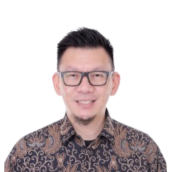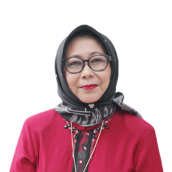Trainings
There was a range of open training opportunities, provided by Colombo Plan, that took place in person at the Indonesia 2025 event. Details of all the training available are listed below.
Universal Prevention Curriculum (UPC) 81: Engaging Youth in Prevention Curriculum
Duration: 4 days , 15th - 18th September 2025)
Location: The Dome, Discovery Kartika Plaza Hotel
Language: English with translation to Bahasa
Description
This course provides youth with basic knowledge of substance use disorders and the science of prevention, and trains them to become effective youth leaders in substance use prevention programs in their communities. The training is designed to help youth understand and recognize the important role they play in building and sustaining prevention efforts, as well as in developing and implementing prevention interventions and policies effectively in their communities, colleges, and workplaces. The training places teamwork at the core of the program through an experiential learning process that supports youth development by incorporating cultural values into substance use prevention, while providing space for youth leadership practice.
Training Objectives
- Building the role of youth in substance use prevention through education about drugs, psychoactive substances, and substance use disorders (SUD), including how these substances affect mood, thoughts, judgment, and behavior.
- Strengthening youth understanding of the importance of substance use prevention, the factors that contribute to substance use behavior, and the key components of implementing prevention interventions.
- Equipping youth with the skills to develop feasible project plans for substance use prevention interventions based on an individual’s actual contextual needs.
- Empowering youth to effectively implement prevention interventions and policies within their communities.
Training Language
English with translation to Bahasa
Duration
4 days (15th - 18th September 2025)
Allocation
30 slots
Selection Criteria
- Students and young professionals who are Indonesian citizens residing in Indonesia, aged 20–24 years.
- Students:
- Currently enrolled in or completed one of the following areas of studies, including but not limited to:
- Behavioral Sciences (Psychology, Counselling, Social Work, etc.
- Journalism and Mass Communication.
- Education.
- Management and related courses.
- An elected/appointed official of an accredited students’ organization or body.
- Experience in volunteerism, substance use prevention, community engagement, and social activism preferred.
- Young professionals from government, non-governmental sectors, educational institutions, media and related agencies:
- Minimum high school (equivalent to A levels or grade 12) qualification.
- Minimum one year experience in the substance use prevention field.
- Experience in volunteerism, substance use prevention, community engagement, and social activism preferred.
- Additionally, the participants should:
- Be fluent in English and their national language.
- Be medically fit.
- Possess good communication and feedback skills.
Universal Nursing Addictions Curriculum (UNAC)
Duration: 3 days - 16th - 18th September 2025
Location: Discovery Room, Discovery Kartika Plaza Hotel
Language: English
Description
This course is designed specifically for nurses to increase their knowledge, skills and engagement in the care of individuals, their families and communities impacted by substance use disorders. The content and methodology ensure that nurses develop a balanced perspective of the principles relating to both the science and art of caring for individuals and their communities affected by problematic substance use.
Training Objectives
- Cultivate an understanding of the impact problematic substance use may have on individuals, families, groups and societies, along with recognizing the vital role nurses play within the broader response framework to address global substance use issues.
- Equip nurses to overcome personal and workplace biases, helping them build stronger empathetic connections with patients struggling with substance use, to create a more compassionate and supportive care environment.
- Strengthen nurses' abilities in assessing and intervening with individuals facing substance use challenges. This encompasses acquiring proficiency in early identification through effective screening and assessment techniques, as well as motivational interviewing and engagement strategies.
- Empower nurses advocate for marginalized patient groups by fostering interdisciplinary collaboration among health and social care professionals, encouraging leadership roles, and facilitating active involvement with professional nursing organizations.
Training language
English
Duration
3 days (16th - 18th September 2025)
Allocation
20 slots
Selection Criteria – UNAC Level 1 Requirements
- Meet the International Council of Nurses (ICN) definition of a nurse i.e. "The nurse is a person who has completed a programme of basic, generalized nursing education and is authorized by the appropriate regulatory authority to practice nursing in his/her country.
- Have 1-3 years’ clinical work experience in general healthcare settings.
- Training experience in the Universal Treatment Curriculum (UTC) is an advantage.
- Fluent in English and demonstrates strong verbal communication skills.
Universal Recovery Curriculum (URC) 2: Delivering Recovery Support Services: The Recovery ALLIES (Allies Link and Lend Inventive Engaging Support) Model
Duration: 3 days - 16th - 18th September 2025
Location: Rama Room, Discovery Kartika Plaza Hotel
Language: English with translation to Bahasa
Description
The URC-ALLIES course focuses on equipping participants with core competencies and skills to work as recovery support professionals through a brief foundation that defines substance use disorders and recovery and then provides the needed information about competencies and skills, including awareness of trauma-informed care, self-care, and boundary setting, to work successfully as a recovery support professional. This course does not require any prerequisite training and is designed as a standalone course, enabling rapid training of recovery support professionals in the field.
Training Objectives
- Developing recovery support providers with the core values, principles, roles, responsibilities, and attitudes essential for effective recovery support services.
- Equipping recovery support providers with a clear understanding of the challenges associated with substance use disorders (SUD), as well as the concepts and practices of recovery support services.
- Strengthening the role of recovery support providers through practical exercises in specific core recovery support-service skills, as well as cross-cutting skills applicable to various types of recovery support services.
- Empowering recovery support providers in identifying risks and ethical considerations, and in practicing the use of an ethical decision-making model in the implementation of recovery support.
- Equipping recovery support providers with the means to effectively engage with the broader environment in which recovery support services take place.
Training Language
English with translation to Bahasa
Duration
4 days (15th - 18th September 2025)
Allocation
20 slots
Selection Criteria
- Individuals who do not identify as being in recovery.
- Those with an interest in working as recovery support professionals and/or engaging in recovery-related interventions in the community.
- Fluent in English – able to demonstrate strong communication and feedback skills.
Managing Substance Use Disorder Treatment Services in line with International ‘Key Quality Standards’ (the Management Handbook, 2025)
Duration: 2 days - 16th - 17th September 2025
Location: Shinta Room, Discovery Kartika Plaza
Language: English with translation to Bahasa
Description
This course is for managers and clinical leads of SUD treatment services. Over the past few years, international organizations have produced a range of excellent evidence-based guidance and quality standards on drug (use disorder) treatment including, the ‘International Standards for the Treatment of Drug Use Disorders’ WHO/UNODC (2020). But how do the funders, leaders and managers of drug treatment services put these guidance and standards into practice? The International Consortium on Quality (ICQ) identified a gap in practical advice for managers on how to implement this guidance and standards and commissioned the ‘Management handbook’ to help fill this implementation gap.
This training based on the new ‘Management Handbook’ (Colombo Plan 2025), supports national and international initiatives to improve the quality and effectiveness of SUD services for those who use services and their communities.
The training is delivered by Annette Dale-Perera (author of the Management Handbook) and Rita Notarandrea (ICQ Global Lead).
Training Objectives
- Help leaders implement both good management practices and international guidance and standards.
- Participants will gain skills to be able to audit their services and create action plans to improve services in line with the Key Quality Standards (UNODC et al 2021).
Training Language
English with translation to Bahasa
Duration
2 days (16th - 17th September 2025)
Allocation
20 slots
Selection Criteria
- Managers or Clinical Leads of SUD treatment services, or senior staff involved in quality assurance may apply.
- Willingness to commit to 2 days of training and create an action plan to audit and improve your service.
- Fluent in English and demonstrates strong verbal communication and feedback skills.
- Translation will be available into Bahasa, non-English speaking participants from Indonesia are welcomed.
Workshops
Workshops took place as part of the ISSUP 2025 event on 16th September 2025.
Participants joined either half-day (morning or afternoon) or full-day sessions, with an additional fee of Rp 480,000 (approx. USD $30).
Registrations are now closed.
Morning Session - 09:00 - 12:30
Introduction to SMART Recovery
Location: Bali Dynasty Resort, Kuta
Duration: Half-day session (Morning)
Training Group: SMART Recovery Indonesia - Samuel Nugraha, ICAP II

Samuel Nugraha, ICAP II, is an addiction recovery and drug policy expert with 20+ years of experience across Asia. He works with UN agencies and the Colombo Plan, contributes to Indonesia’s national standards, and serves as Global SMART Trainer and Southeast Asia representative for SMART Recovery Indonesia.
Description:
This session provides an overview of SMART Recovery, an evidence-based approach to supporting behavior change. Participants will learn about its history, principles, and how it differs from other mutual-support models.
For more information about the programme, click here.
Overview of Treatnet Family Intervention
Location: Bali Dynasty Resort, Kuta
Duration: Half-day session (Morning)
Training Group: UNODC Indonesia - Narendra Narotama, ST

Narendra is a drug demand reduction expert with 20+ years of experience in clinical services, program leadership, and policy. He works with UNODC Indonesia, supporting family and treatment programs. With a unique background in architecture and Islamic business, he integrates science and culture in addiction prevention and care across Asia.
Description:
This session offers an overview of UNODC’s Treatnet Family Intervention, highlighting core family therapy elements for treating adolescents with substance use disorders, including those in contact with the justice system. It demonstrates how the approach supports practitioners across sectors by strengthening family dynamics and fostering hope. Promising findings from an Indonesian study will also be presented.
For more information about the programme:
Treatnet Family: Addressing adolescent substance use and related problems through family-based approaches
“My dream is simple”: helping adolescents recover from substance use
Trauma-Based Addiction
Location: Bali Dynasty Resort, Kuta
Duration: Half-day session (Morning)
Training Group: EMDR Indonesia - Dr. Tri Iswardani Sadatun (Dani)

Dr. Tri Iswardani Sadatun (Dani) is a clinical psychologist and lecturer at the University of Indonesia, specializing in trauma and addiction. She consults for national agencies, leads EMDR Asia, and serves as Vice President of the Indonesian Psychological Association (Jakarta). Her work focuses on recovery, crisis management, and community service.
Description:
Many people use substances to cope with the pain of trauma—such as abuse, neglect, or loss. This session explores how trauma affects the brain, increases addiction risk, and often leads to co-occurring issues like PTSD or depression.
For more information about EMDR Asia click here.
Overview of Medication Assisted Therapy (in Indonesian language)
Location: Bali Rani Hotel,Kuta
Duration: Half-day session (Morning)
Training Group:
Dr. Diah S. Utami, Sp.KJ., MARS & Dr. Danardi Sosrosumihardjo,Sp.KJ (K)

Dr. Diah Setia Utami, Sp.KJ (K), MARS, Ph.D. is a senior psychiatrist and public health expert with decades of experience in mental health and addiction treatment in Indonesia. She earned her medical degree from Diponegoro University in 1984, completed her psychiatry specialization at the University of Indonesia in 1996, obtained a Master’s in Hospital Administration in 2001, and earned a Ph.D. in Public Health in 2016 from the same university.
She served as President Director of RSKO Jakarta, the national referral hospital for drug dependency, from 2010 to 2011, and as Director of Mental Health at the Ministry of Health from 2011 to 2013. From 2013 to 2021, she held the position of Deputy for Rehabilitation at the National Narcotics Board (BNN RI), where she was responsible for overseeing national addiction rehabilitation programs.
Dr. Utami served as President of the Indonesian Psychiatric Association (PDSKJI) from 2019 to 2022. She currently serves as the Director of ISSUP Indonesia National Chapter, where she leads strategic efforts to professionalize addiction treatment and promote evidence-based interventions in Indonesia.

Dr. Danardi Sosrosumihardjo,Sp.KJ (K) is a highly respected Indonesian psychiatrist with over four decades of experience in mental health, clinical psychiatry, and medical ethics. He specializes in addiction psychiatry and has played a key role in advancing the field in Indonesia.
A graduate of the Faculty of Medicine, University of Indonesia (FKUI), Dr. Danardi has served in both academic and governmental roles, including as Director of Hazardous Substance Control at the Indonesian Food and Drug Authority (BPOM) and President of the ASEAN Federation of Psychiatry and Mental Health (AFPMH).
He currently serves as a consultant psychiatrist at several leading hospitals and as a guest lecturer at FKUI. He is also active in professional organizations, holding positions in the Indonesian Medical Association (IDI) and the Indonesian Psychiatric Association (PDSKJI), particularly in ethics and addiction psychiatry. His contributions have made him a key figure in shaping psychiatric practice, education, and policy in Indonesia.
Description:
This workshop introduces participants to Medication-Assisted Therapy (MAT)—a proven approach combining approved medications with counseling and behavioral support to address the physical, emotional, and psychological aspects of addiction.
Participants will learn how MAT reduces cravings, prevents relapse, and supports recovery through integrated, person-centered care. The session also highlights the role of therapy, clinical workflows, and best practices for implementation.
Designed for clinicians, counselors, and healthcare workers in addiction and mental health services, the session will also review service delivery models, treatment planning, and strategies to increase patient engagement in MAT programs.
How Do Substance Use Professionals Reduce Drug Related Crime?
Location: Arjuna Room, Discovery Kartika Plaza Hotel
Duration: Half-day session (Morning)
Training Group:

Michele Worobiec, JD, Global Lead, International Consortium for Alternatives to Incarceration (ICATI), michele [dot] worobiec [at] icati [dot] org (michele[dot]worobiec[at]icati[dot]org); Founder & CEO of Silta Strategy, LLC, michele [dot] worobiec [at] siltastrategy [dot] com (michele[dot]worobiec[at]siltastrategy[dot]com)

Roger H. Peters, Ph.D., Emeritus Professor, University of South Florida, Vice-President of ICUDDR, and member of the ICATI Executive Leadership Team; rhp [at] usf [dot] edu (rhp[at]usf[dot]edu)
Description:
How do substance use professionals reduce drug related crime?
Join our dynamic workshop to explore this question together. During the half-day session, you will:
- Learn about the connection between drug use and crime
- Identify clinical and legal factors that inform the right approach for the right people
- Understand how your services align with a full continuum of justice responses
- Plan for gathering data that drives decisions and assess outcomes
Afternoon Session - 13:30 - 17:00
Introduction to SMART Recovery Tools
Location: Bali Dynasty Resort, Kuta
Duration: Half-day session (Afternoon)
Training Group: SMART Recovery Indonesia - Samuel Nugraha, ICAP II

Samuel Nugraha, ICAP II, is an addiction recovery and drug policy expert with 20+ years of experience across Asia. He works with UN agencies and the Colombo Plan, contributes to Indonesia’s national standards, and serves as Global SMART Trainer and Southeast Asia representative for SMART Recovery Indonesia.
Description:
This session introduces participants to key SMART Recovery tools used to support self-empowered change. It includes practical exercises with tools such as the ABC, CBA, and Stages of Change, helping participants understand how to apply them in real-life situations.
For more information about the programme, click here.
Overview of Family United
Location: Bali Dynasty Resort, Kuta
Duration: Half-day session (Afternoon)
Training Group: UNODC Indonesia - Narendra Narotama, ST

Narendra is a drug demand reduction expert with 20+ years of experience in clinical services, program leadership, and policy. He works with UNODC Indonesia, supporting family and treatment programs. With a unique background in architecture and Islamic business, he integrates science and culture in addiction prevention and care across Asia.
Description:
This session introduces UNODC’s Family United, a family skills training package that helps caregivers strengthen parenting practices and promote positive, age-appropriate family interactions. It encourages supportive parenting, clear rules, active monitoring, and role modeling, while helping children build decision-making skills. Promising findings from an Indonesian study will also be shared.
For more information about the programme, click here.
Trauma-Informed Care
Location: Bali Dynasty Resort, Kuta
Duration: Half-day session (Afternoon)
Training Group: EMDR Indonesia - EMDR Indonesia - Dr. Tri Iswardani Sadatun (Dani)

Dr. Tri Iswardani Sadatun (Dani) is a clinical psychologist and lecturer at the University of Indonesia, specializing in trauma and addiction. She consults for national agencies, leads EMDR Asia, and serves as Vice President of the Indonesian Psychological Association (Jakarta). Her work focuses on recovery, crisis management, and community service.
Description:
Learn how trauma shapes substance use and why trauma-informed care is essential in treatment. This session introduces key trauma principles, EMDR (Eye Movement Desensitization and Reprocessing) techniques, and how integrating trauma care improves outcomes for individuals with substance use disorders.
For more information about EMDR Asia click here.
Recent Advances in Evidence-Based Drug Treatment for Persons in the Criminal Justice System
Location: Arjuna Room, Discovery Kartika Plaza Hotel
Duration: Half-day session (Afternoon)
Training Group:

Roger H. Peters, Ph.D., Emeritus Professor, University of South Florida, Vice-President of ICUDDR, and member of the ICATI Executive Leadership Team; rhp [at] usf [dot] edu (rhp[at]usf[dot]edu)

Michele Worobiec, JD, Global Lead, International Consortium for Alternatives to Incarceration (ICATI), michele [dot] worobiec [at] icati [dot] org (michele[dot]worobiec[at]icati[dot]org); Founder & CEO of Silta Strategy, LLC, michele [dot] worobiec [at] siltastrategy [dot] com (michele[dot]worobiec[at]siltastrategy[dot]com)
Description:
Criminal justice systems in many countries are overwhelmed by the increasing numbers of persons who have substance use disorders. Over half of persons in most criminal justice systems have a diagnosable substance use disorder and need drug treatment. These persons are frequently arrested, incarcerated, or placed on supervised release in the community, typically without access to quality drug treatment.
If treatment is available it is often of poor quality, resulting in relapse and cycling back into criminal courts and into short- and long-term incarceration. This diminishes the credibility of drug treatment and encourages the belief that treatment is ineffective and a waste of resources. Fortunately, a considerable amount of clinical research has recently been conducted to identify effective treatment approaches.
This workshop will explore evidence-based approaches for screening, assessment, treatment (including cognitive-behavioral and pharmacological interventions, and those that address criminality and risk for recidivism), case management, and reentry services that can help to interrupt the cycle of drug use and crime. The workshop will also identify criminal justice treatment services that are not effective.
An Overview: Motivational Interviewing
Location: Bali Rani Hotel,Kuta
Duration: Half-day session (Afternoon)
Training Group: Katherine Dela Cruz, RPsy, ICAP III

Kath is a clinical psychologist and an international certified addiction professional with more than a decade of practice in addiction treatment and recovery. She has been involved in drug demand reduction initiatives in the Philippines’ local government units in collaboration with
international organizations.
At present, she is attending to military veterans from various military operations who are dealing with post-traumatic stress disorder and co-occurring disorders. As a Global Master trainer, she conducts training on the Universal Treatment Curriculum for
substance use disorder in Asia and the Pacific.
Description:
Motivational interviewing (MI) is a person-centered collaborative, goal-oriented style of communication with particular emphasis on the language of change. It's a person-centered approach that is particularly useful for addressing ambivalence about change and helping individuals overcome resistance to modifying behaviors.
Full-day Session 09:00 - 17:00
Softness & Strength: Women-Centred Clinical Care
Location: Bali Rani Hotel, Kuta
Duration: Full day session
Training Group: Therese Castillo, MS, RPsy, ICAP-I

Therese Castillo is a clinical psychologist and International Certified Addiction Professional with expertise in treatment, program development, and training. She leads Camp Coco Wellness and serves as Project Manager for The Colombo Plan in the Philippines. As a Global Master Trainer, she conducts addiction-focused training across Southeast Asia.
Description:
This is a one-day workshop session designed for all individuals who are working in the treatment and recovery space. This session focuses on building skills on creating a safe healing space for women with substance use disorders, identifying strengths and challenges in the treatment space, and collaborative treatment planning for women.
For more information, click here.
Managing Clients with Comorbid Gambling Disorder and Substance Use Disorder: Early Detection, Assessment, and Integrated Therapeutic Strategies (In Indonesian language & Invitation Only)
Location: Aston Hotel, Kuta
Duration: Full day Session
Training Group:

Dr. Kristiana Siste, Sp.KJ, Subsp. Ad (K) is an addiction psychiatrist and Chair of the Department of Psychiatry at the Faculty of Medicine, Universitas Indonesia – dr. Cipto Mangunkusumo General Hospital (RSCM). After completing her medical and psychiatry training at Universitas Indonesia, she obtained her addiction psychiatry subspecialty in 2013. Her research focuses on substance and behavioral addiction, with interests in prevention, neurocognition, genetics, treatment adherence, and neuroimaging.
Dr. Siste developed the addiction module used in medical and residency programs and leads a one-stop addiction and HIV/AIDS service at RSCM. She actively contributes to national addiction policy and global collaborations. She serves as Vice President of the Addiction Psychiatry Division at PDSKJI, an expert consultant for BNN and UNODC, and is a committee member of ISBRA, ISAM, and the ISSUP Global Scientific Advisory Committee.

Dr. Tribowo Tuahta Ginting, Sp.KJ, Subsp. Ad (K) is a consultant addiction psychiatrist and Head of the Psychiatry Department at RSUP Persahabatan, Jakarta. He earned his medical degree, psychiatry specialization, and addiction psychiatry subspecialty from the Faculty of Medicine, Universitas Indonesia, and is currently pursuing his doctoral degree at the same institution.
Dr. Ginting has over two decades of clinical and academic experience, actively teaching in psychiatry and addiction programs at various universities. He has led and participated in numerous national and international conferences, workshops, and training initiatives focused on nicotine addiction, behavioral addiction, and substance use disorders. His research includes work on smoking cessation, mental health in respiratory patients, and addiction interventions in prison settings.
He is a longstanding member of professional organizations such as the Indonesian Psychiatric Association (PDSKJI), the Indonesian Psychiatric Group of Addiction, and the International Society of Addiction Medicine (ISAM), and has received several national and international awards for his contributions to addiction psychiatry and medical education.

Dr. Enjeline Hanafi, Sp.KJ, Subsp. Ad (K) is a clinical psychiatrist and lecturer at the Faculty of Medicine, Universitas Indonesia and dr. Cipto Mangunkusumo Hospital. Specializing in Addiction Psychiatry, her expertise includes substance use disorders and behavioral addictions such as internet, gaming, and gambling addiction. Trained in both Indonesia and Australia, she is active in clinical practice, research, and education, with over 30 scientific publications. dr. Enjeline currently serves as Secretary of the Addiction Psychiatry Section at PDSKJI and is actively involved in global networks like ISAM-NExT and the World Psychiatric Association.
Description:
The co-occurrence of gambling disorder and substance use disorder presents a significant clinical challenge, as both conditions often share overlapping risk factors, neurobiological pathways, and psychosocial consequences. Without proper integration of services, individuals with this dual diagnosis are at higher risk of treatment dropout, relapse, and chronic impairment. Addressing this urgent need, this workshop is designed to provide participants with practical, evidence-based skills to detect, assess, and manage these comorbidities effectively.
Participants will be guided through a comprehensive learning experience that includes interactive lectures, structured case discussions, and hands-on role-play sessions. Emphasis will be placed on real-world clinical applications, including how to identify early warning signs, perform biopsychosocial assessments, and formulate personalized treatment plans that integrate pharmacological and psychotherapeutic approaches. The workshop also highlights the importance of interdisciplinary collaboration to ensure holistic and recovery-oriented care.
This training is intended for psychiatrists, psychologists, general practitioners, and addiction counselors who are seeking to deepen their competence in treating complex addiction cases, particularly within the evolving landscape of behavioral addictions in Indonesia.
This list may be updated, so please check back for further workshops!
Trainings
The ICUDDR Center for Credentialing & Accreditation (CCA) offered all ICAP Exams in Bali, Indonesia, on 18 September 2025, during the ISSUP 2025 event. This provided a valuable opportunity for professionals in the Drug Demand Reduction field to gain internationally recognised certification and further their careers.
Exams Offered:
- ICAP-Treatment I, II, III, IV
- ICAP-Prevention
- ICAP-Recovery Support
Date: Wednesday, 17th September 2025
Exam Registrations begun at 5:30pm. The examination took place from 6:00 pm – 9:00 pm
Location: DISCOVERY KARTIKA PLAZA
Address: Jl. Kartika Plaza, South Kuta Beach, Bali, Indonesia
Application for ICAP is now closed.
For your information the following PDF/scanned documents are required for upload as part of the application process. Applications without required supporting documents will be rejected.
- Detailed CV of the candidate highlighting the highest education qualification and major subject of the highest education qualification
- A letter from the candidate’s supervisor confirming that the applicant’s clinical/counseling experience took place in an organization that is legally registered and authorized (or licensed), in accordance with the country’s laws,
- Narrative description of work experience in the substance use sector in prevention, treatment or recovery support.
- A certified copy of the highest educational qualification (i.e. official diploma/degree) from the awarding institution, bearing the institution’s stamp.
- Certified copies of relevant training certificates including all UTC, UPC, and URC basic and advance level training that include the awarded hours and dates of training.
- Certified copies of other relevant Diplomas/ University certificates and transcripts bearing the institution’s stamp.
If applicants find any difficulties/issues while submitting applications, email: cca_info [at] icuddr [dot] org. Once the application is approved, the applicant will receive a notification to pay the examination fee through the portal using a credit card or bank transfer.